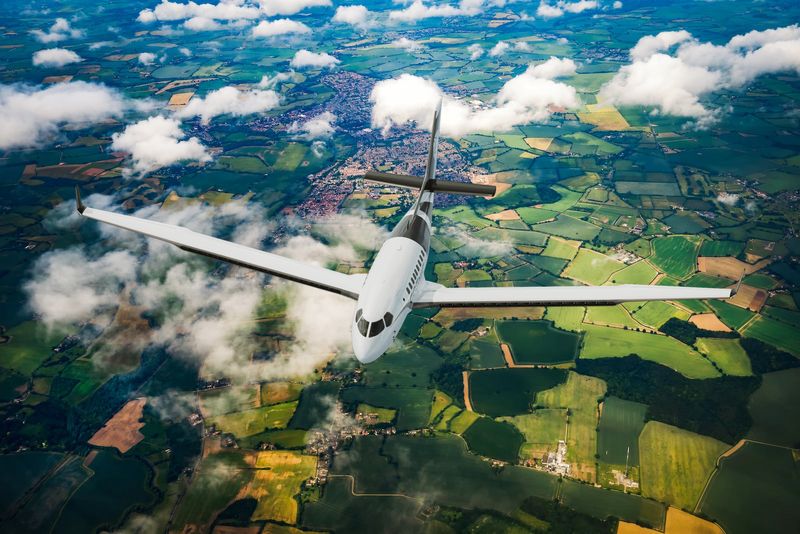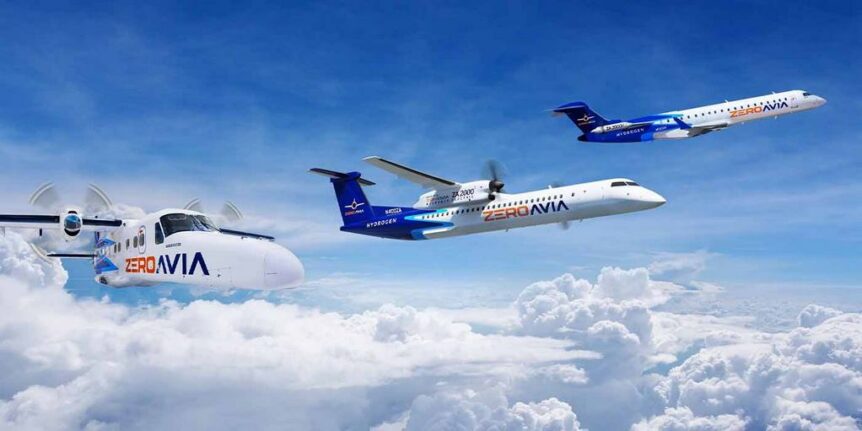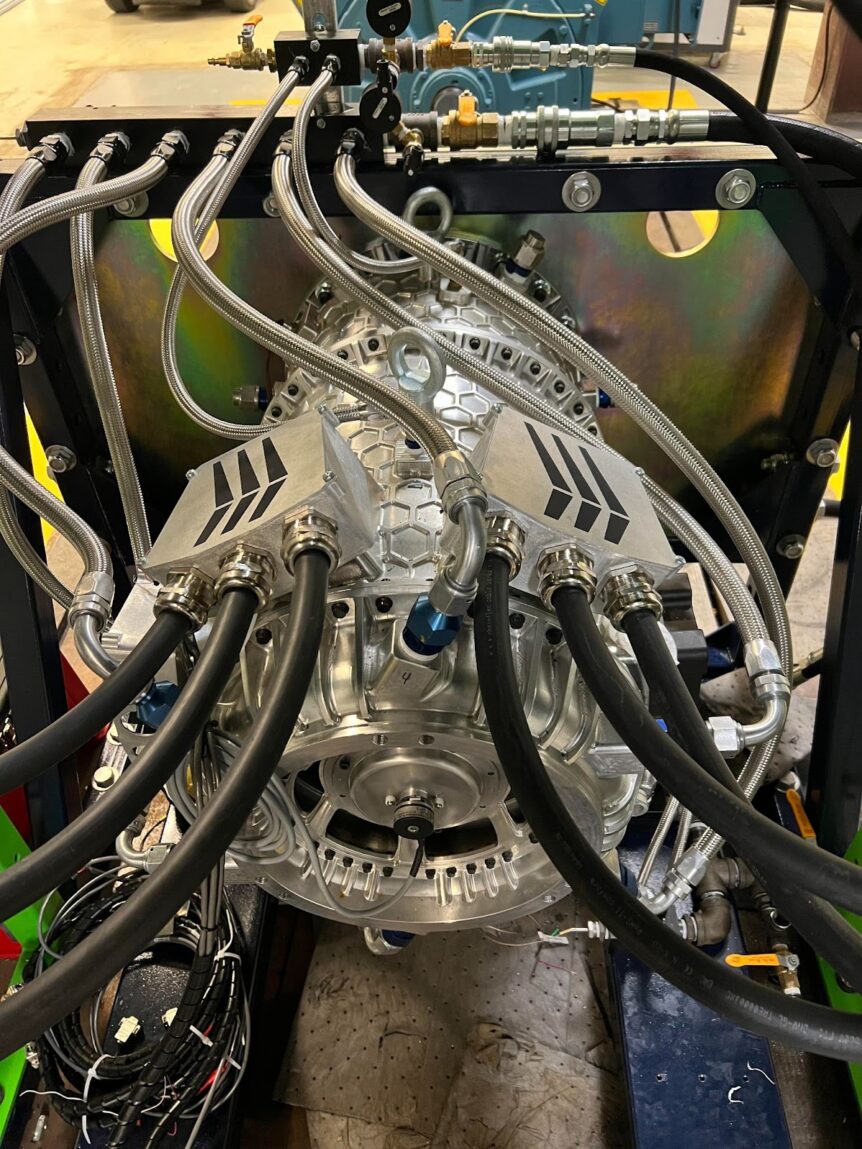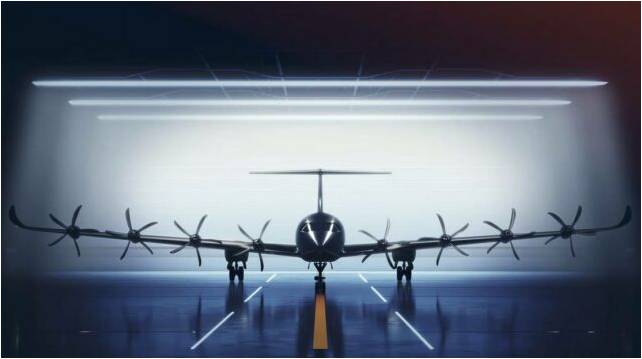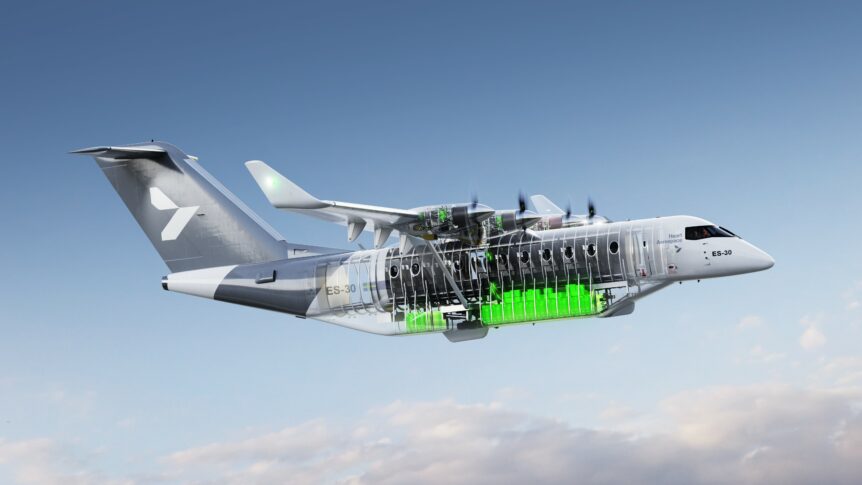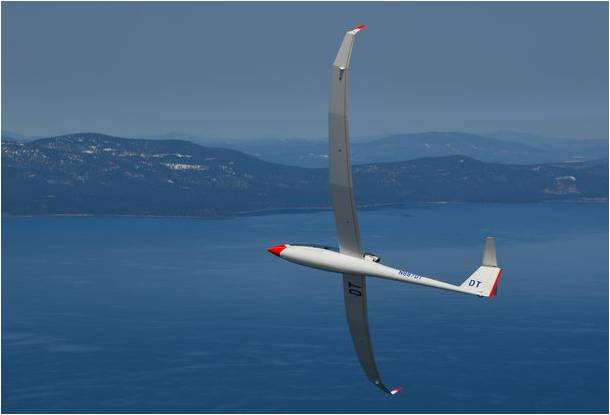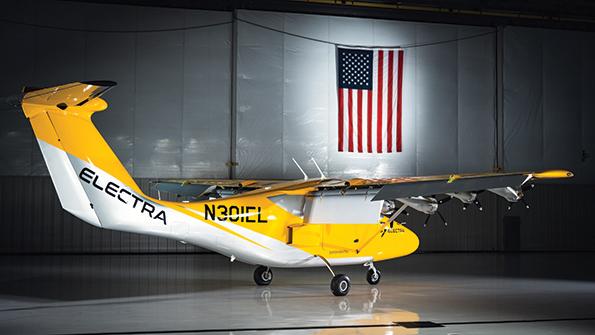Altitude records are tricky. Aiming for new heights requires careful definition of one’s launch points, means of elevating oneself, and apparently adherence to a tightly defined set of rules. Helios Horizon set some new altitude records last year, and hopes to reach even higher soon. Its eventual goal is to fly “into earth’s stratosphere”– in an electric aircraft. Records at Altitude – and Speed This might seem like a bit of a step down for Miguel Iturmendi, the founder and test pilot for the Helios Horizon project. He’s already been to 65.605 feet (19.9 kilometers) in Perlan II, on August 28, 2018. As the Saratoga Times notes, the flight hit “The fastest known speed of Mach 0.48—roughly half the speed of sound—in a glider over El Calafate, Argentina, which earned him and his team the Society of Flight Test Engineers’ James S. McDonnell Award, as well as a Triple Lennie Pin (an aviation award for soaring named for the lenticular clouds …
Climate Impulse – Not at All Impulsive
Born of the heritage of the Solar Impulse Foundation and taking it further, Climate Impulse wants to showcase concrete technologies that can revolutionize the aviation industry, and the mobility sector in general. Two Well-Travelled Partners We are all familiar with the exploits of Bertrand Piccard, which include the first circumnavigations of the globe in a balloon and more recently in a solar aircraft. He comes from a family of explorers who have climbed the heights and plumbed the depths of our world. We are probably less familiar with an equally intrepid adventurer, Raphael Dinelli. Dinelli attempted a solar circumnavigation of the globe as part of the 1996-1997 Globe Vendee competition. He didn’t quite make it full circle, sinking in the Indian Ocean. The Australian Air Force dropped a life raft to him and then he was pulled to safety by another competitor, Peter Goss. According to Wikipedia, “He went on to sail with Goss in the 1997 edition of the …
A Different Kind of Blown Wing
32 Motors across a long Wing Cosmic Aerospace has announced a different kind of “blown wing,” hiding 32 specially developed electric turbines across the inner span of a high-aspect-ratio wing. Cosmic will attempt to achieve jet-like speeds at half the cost of fossil-fuel or sustainable aviation fuel (SAF) powered jet. Electric-flight.eu notes the American-Belgian firm was founded by “graduates of Boom Supersonic, NASA, Oxford and Kittyhawk,” a broad spectrum of talent. Part of that team is creating a fully-electric “jet engine,” currently under test at Limburg Regional Airport in Belgium. The motors will be fed by packs of 360-Watt-hour per kilogram batteries, achievable with today’s technology. This enables up to 1,000 kilometer (600 mile) range for a long-winged craft carrying 24 passengers. “Unlike other startups in the field, which are mostly focused on sustainable jet fuels, hydrogen, and battery tech, Cosmic has focused its engineering efforts on better propulsion systems and a unique air frame design, CEO Christopher Chahine told …
GoAero Prize Highlights Rescue Missions
The GoAero Prize has a simple-sounding, but incredibly complex goal: Design and build a safe, portable, robust, autonomy-enabled Emergency Response Flyer. The Vision The Prize’s vision defines the heroes who look past danger, who step in to be, “The difference between triumph… and tragedy, and especially, those who “Use Their Minds to Create technology that Saves Lives.” There’s $2 million waiting for those who come up with the best solutions. And the competition promises even greater glory, “This is your chance to make history… and save lives.” GoAero says, “The world needs this,” explaining that, “In the U.S. alone, nearly 4.5 million people live in “ambulance deserts,” in a medical crisis, people in these areas have to wait as long as 25 minutes or more for an emergency medical crew to arrive.” We’ve seen recent examples of how serious such waits can be. Paradise, California was a thriving community of over 26,000 before the disastrous Camp Creek fire in 2018. …
ZeroAvia Cryo-Compresses Hydrogen
ZeroAvia, already deploying hydrogen as a main part of its flight program, is exploring the use of cryo-compressor technology to deliver more energy dense H2 for longer flights. If we think of gasoline or Diesel fuel as “Cream of Energy Soups,” we might understand their preeminence as energy carriers. A U. S. gallon (3.8 liters) of Gasoline for instance, contains about 33.4 kilowatt-hours of energy. Compare this to a state-of-the-art lithium battery, which tops out at around 0.5 kW-hrs. A Diesel engine might be able to convert 50 percent of that to useful work, with the rest going to waste heat. A gasoline engine fares even worse, extracting perhaps 30 percent as work and 70 percent as waste heat. Electric Motors, however, are highly energy efficient, some extracting up to 97 percent of a battery’s stored energy. If one uses hydrogen instead of batteries, one can reach parity with the amount of energy available to spin the propellers. As early …
Wright Electric Passes Partial Discharge Tests
Wright Electric, testing its 1.2 megawatt motor, has passed partial discharge tests, a significant achievement in high-altitude safety. The company explained the results and their importance in a press release. ”Wright Electric Announces Successful Partial Discharge Testing on our Motor” “We are pleased to share a significant achievement in our ongoing pursuit of decarbonizing the industries that are hardest to decarbonize. Wright Electric proudly announces the successful completion of an altitude simulation test conducted in the Wright Lab, showcasing our 2 megawatt motor’s robust performance at a simulated atmosphere equivalent to 43,000 feet without experiencing Partial Discharge (PD).” Jeffrey Engler, founder and CEO of Wright Electric, explains in the press release, “Partial discharge is a form of electrical failure where electric charge escapes through tiny voids in apparently solid insulation. When partial discharges occur they can degrade the insulation and create a risk of fire in the motor. PD becomes more likely at high altitudes due to thinning of the …
E9X: 90 Passengers, 480 Battery Miles
What can carry 90 passenger 480 miles on battery power alone? Such a query flies in the face of others’ efforts to hybridize medium-range flight, but may be answered by Delft-based Elysian Aircraft. Their eight-motored, battery-powered E9X uses a backup turbogenerator only for reserves, putting a level of trust in the 365 Watt-hour per kilogram cells buried within the long, slender wing for safe transit. Graham Warwick’s Article Graham Warwick, writing for Aviationweek.com, explains that, “Breaking with traditional design principles, Delft-based Elysian says it has found design space where a large electric aircraft looks viable with near-term battery technology.” That kind of range for that large an aircraft seems extreme, but the E9X’s developers are using currently-available batteries to achieve their goals. Reynard de Vries, director of design and engineering at Elysian, explains, “If you want to make a significant impact on the sector as a whole, then you need to electrify flights up to 1,000 km [620 mi.]. Then …
JSX To Buy a Fleet of Electric Airliners
JSX, an American semi-private airline, may very well shake up the travel world with plans to buy up to 330 electric and hybrid aircraft. JSX (Jet Suite Executive) dispatches with some niceties of larger airlines, but also avoids long lines, TSA (Transport Safety Administration) baggage checks and shoe removal, and lengthy waits for mobs of passengers to stuff their bags in overhead compartments (there are none on their JSX Embraer 135s). Instead, a passenger arrives at a JSX ticket office, sometimes situated in a hangar on the sometimes funky end of the airport, gets a boarding pass and self-serves some light refreshments. He or she walks out to the 30-passenger (maximum allowed) craft, climbs aboard and finds an assigned seat (either two abreast or single). Passengers can even bring a certified service animal into the cabin. This type of aviation seems looser and more enabling than that of the big carriers. JSX is enjoying a lot of press and some …
Airbus and Perlan Check out Hydrogen
Airbus, through its partnership with the Perlan Project, is investigating how to clean vapor trails from the high-flown paths traversed by airliners. Through its pair of Blue Condor jet-powered sailplanes, Airbus and Perlan are working toward a contrail-measuring mission in 2024. Hydrogen, the most abundant element in the universe, has been a rarity in the aviation world, other than in well-publicized events involving gas-fueled conflagrations. (Whether the H2 carrying the Hindenburg aloft or the fabric skin covering the great ship’s frame caused the fire at Lakehurst, New Jersey in 1937 is still somewhat controversial.) Regardless, the disaster brought about a deep mistrust of hydrogen that persists to this day. Airbus, along with the Perlan Project, looks forward to exploiting H2’s advantages while overcoming its undeserved stigma and surprising issues. Perlan’s Greater Mission The Perlan Project has achieved an enviable string of record flights culminating in the 2018 altitude record of 76,114 feet. Carrying CubeSats filled with science experiments developed by …
Electra EL-2 Goldfinch First Flight
Electra.aero plans on lofting nine people into the sky in a little regional airliner. As a first step, the firm just flew its EL-2 Goldfinch demonstrator from the Manassas, Virginia Regional Airport (KHEF). As Flying magazine pointed out, the bright yellow aircraft, “pays homage to its namesake’s golden hue.” Although it’s designed as a “blown lift” aircraft, levitating on deflected airflow under its large flaps, the EL-2 made its first takeoffs as a conventional airplane, scooting along the runway until it reached flying speed. Its November 11 takeoff was apparently on battery power only, with its November 19 second trip assisted by a (possibly Safran) turbogenerator. Electra claims it to be the “world’s first blown lift aircraft using distributed electric propulsion and a hybrid-electric propulsion system.” The eight motors appear to be Safran 45- or 50-kilowatt (60- or 67-horsepower) models. Both flights were piloted by Cody Allee, chief technology officer of ABSI Aerospace & Defense and a former U.S. Marine …



